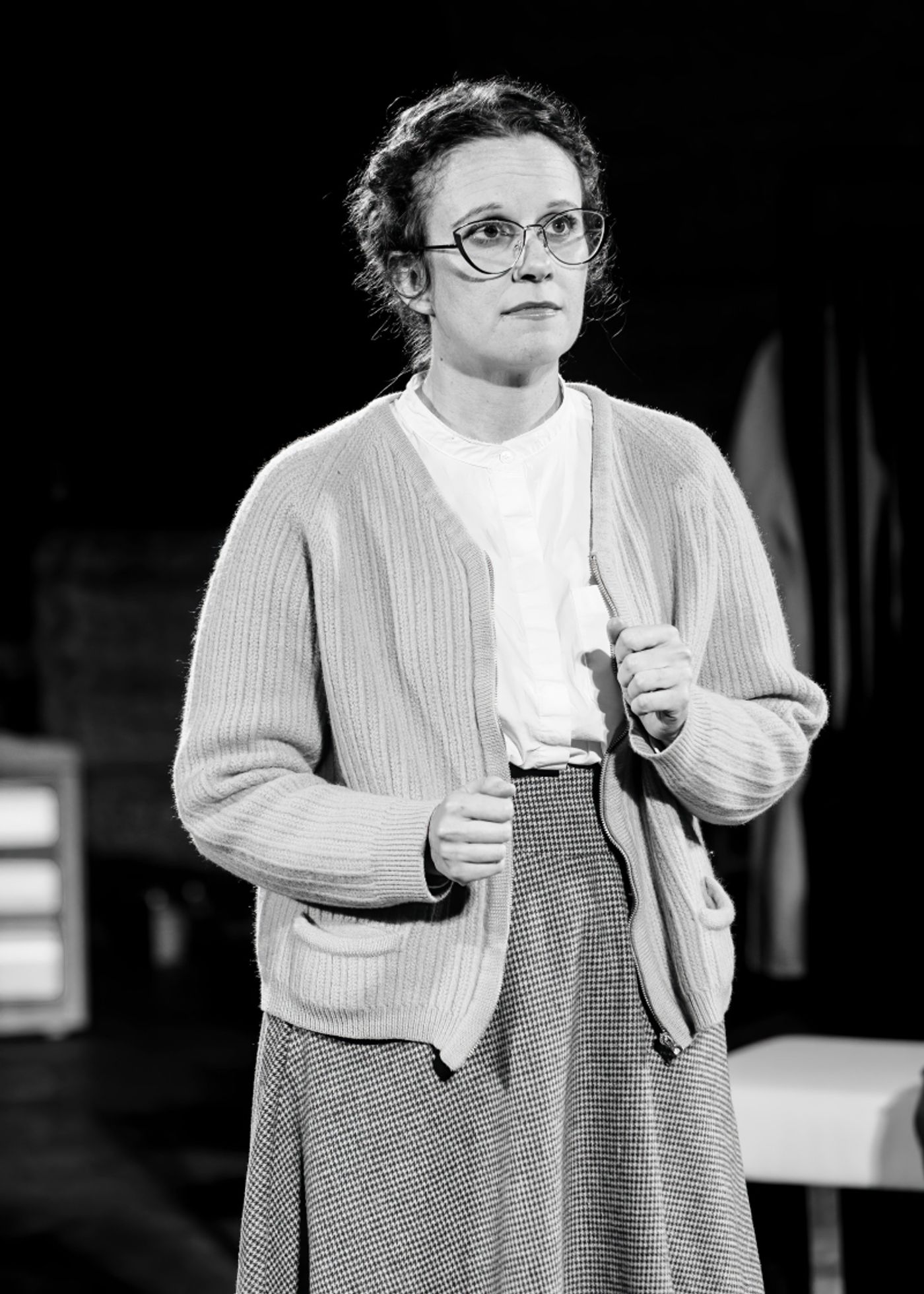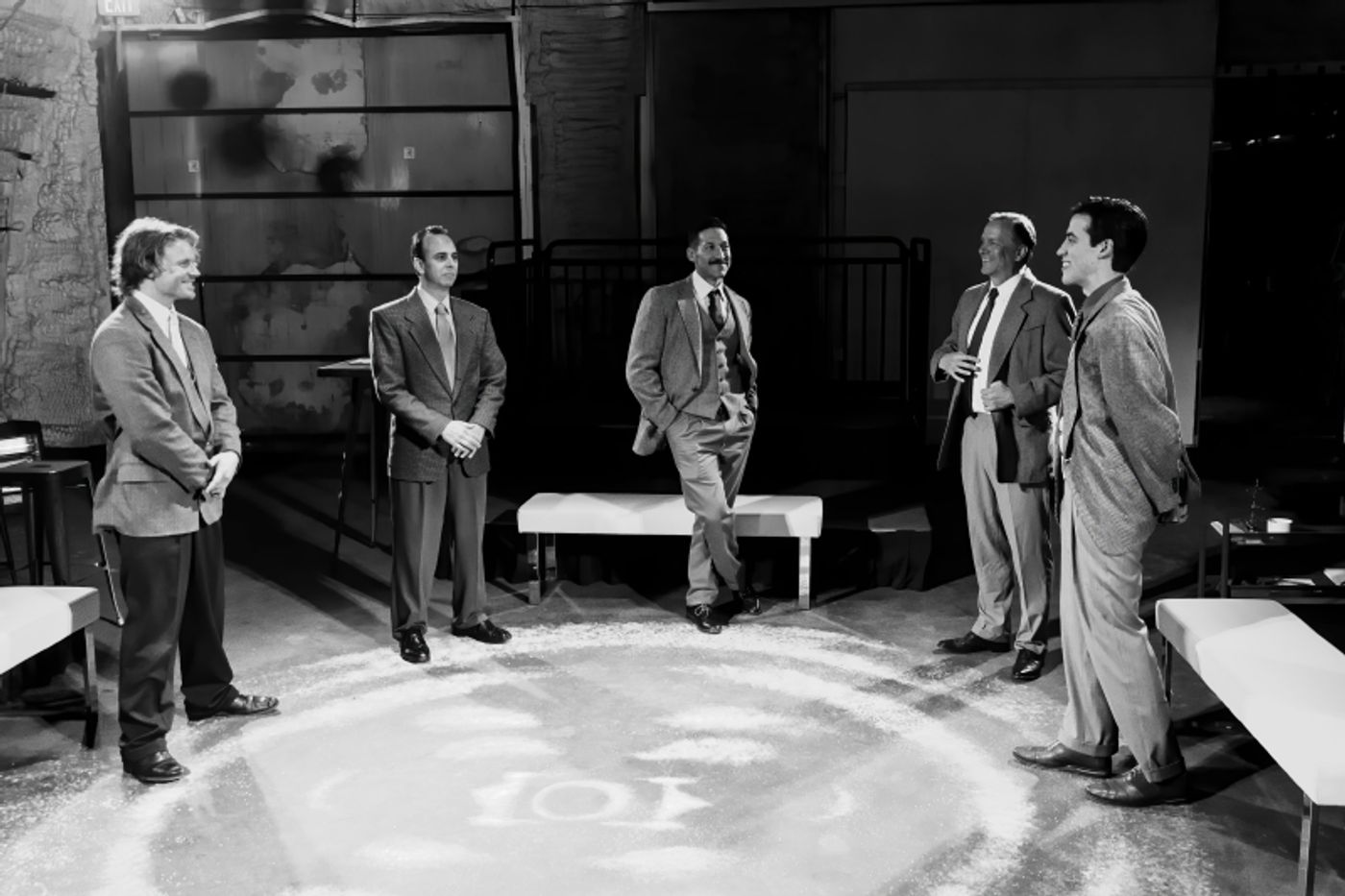Review: PHOTOGRAPH 51 at The Filigree Theatre
Don’t miss Newman’s latest clever artistic presentation, now playing at Factory on 5th through February 4th, 2024
Photograph 51, written by Anna Ziegler, serves as a tribute to Dr. Rosalind Franklin, a pivotal figure in the discovery of the structure of DNA. The plot revolves around Franklin's groundbreaking X-ray diffraction image, Photograph 51, which played a crucial role in the understanding of DNA's double helix structure. Beyond its historical narrative, Elizabeth V. Newman's production, marked by its simplicity, compelling performances, and adept direction, delves into intricate timeless themes. The play explores questions surrounding male-female relationships, the prevailing male dominance in the scientific field, and the ethical dimensions inherent in the pursuit of knowledge, when it intersects with the allure of fame and fortune.
In 1951, Dr. Franklin (Laura Ray) is offered a fellowship at King’s College London drawing her away from her cherished position at the Laboratoire Centrale in Paris. However, upon her arrival in London, she is confronted with an unexpected shift in focus – instead of delving into her passion for proteins, she is assigned to decipher the structure of DNA as an assistant to Dr. Maurice Wilkins (J. Kevin Smith). Upon her refusal to work under his terms, Wilkins offers her a partnership where she does the bulk of the work, while he takes the bulk of the credit. A scenario all too familiar for many women, echoing my own experiences in the high-tech industry. Seeing these reflections on stage made me ponder how, even seven decades after Franklin's death, society hasn’t progressed as much as we would like to believe.
One might initially attribute Franklin's obscured legacy to her dry personality and rigorous research approach but Ziegler, with subtle sarcasm and humorous criticism, compellingly asserts that institutional misogyny in the mid-century scientific community played a major role. Dr. Franklin, rather than being addressed with the deserved respect of her title, is consistently relegated to Ms. Franklin, Rosalind, and even Rosy. This discriminatory treatment is further evidenced by her exclusion from the senior common room at King’s College London, essentially a boys' club, and the lack of opportunities for public speaking to showcase her research and scientific advancements. The consequence of this gender bias becomes starkly apparent in the groundbreaking discovery of the DNA structure, where her male peers – Watson, Crick, and Wilkins – unfairly claimed credit, ultimately earning the coveted Nobel Prize.
Ziegler skillfully structures her argument, utilizing each of the five male actors as characters and narrators. Together, they engage in "mansplaining” the life and thoughts of this brilliant woman. This innovative approach to storytelling unveils the hardships faced by Dr. Franklin, serves as a conduit for relating scientific information that might otherwise be perceived as tedious or dense, and enables the seamless movement of the narrative across time and place.
“Rosalind, if you insist on going forward with this life… you must never be wrong.” - Dr. Franklin shares her father’s advice, Photograph 51

Photograph 51 at The Filigree Theatre
PC: Steve Rogers Photography
Laura Ray delivers an exceptional performance as Dr. Franklin. Her portrayal skillfully captures the essence of a woman whose behavior has been conditioned by the challenges and frustrations of navigating a world dominated by men. The depiction is both poignant and emotional, evoking sympathy and fostering a deep understanding among the audience.
Franklin’s fellow scientists are brightly performed, but are given a very defined role, each representing a different perspective of the boy’s club. Dr. Maurice Wilkins (J. Kevin Smith), is shy and naive, making him susceptible to the machinations of Dr. Watson. Despite his intentions to do right, Wilkins never takes a stand and, instead, contributes to the oppression of his female counterpart. Smith authentically and charmingly delivers the dual nature of Wilkins' personality, inviting the audience to feel compassion for this sad and lonely character. Cameron La Brie delivers a compelling portrayal of Dr. James Watson, an ambitious and unscrupulous young man willing to do anything for quick fame and recognition. Scot Friedman expertly guides the audience through Dr. Francis Crick's journey, a man torn between dreams of a quiet family life and a respected career, ultimately sacrificing it all as he follows Watson in his pursuit of fame and glory.
Dr. Franklin oversees two young apprentices, doctoral student Ray Gosling (Fernando Rivera) and recent graduate Dr. Don Caspar (Bailey Ellis). Interestingly, it is within the younger generation that Dr. Franklin finds respect and recognition. Rivera brings a delightful portrayal as the apprentice, offering a performance that sparks hope for a future where younger men can view women as equals or even superiors with grace. Ellis is charming as Caspar, softening Franklin's character in every scene as he brings out her vulnerability and repressed emotions.
The Filigree Theatre's production of Photograph 51 is staged on a minimalist square layout. Elizabeth V. Newman's adept direction leverages this simplicity to highlight the outstanding performances and the play's rich text, encouraging audiences to engage in the ongoing conversation about the historical role of women in both science and society.

Photograph 51 at The Filigree Theatre
PC: Steve Rogers Photography
Run time: 100 minutes no intermission
PHOTOGRAPH 51
Book by Anna Ziegler
Directed by Elizabeth V. Newman
The Filigree Theatre @ Factory on 5th
https://www.filigreetheatre.com/
Thursday through Saturday 8:00 PM
Sunday 3:00 PM and 8:00 PM
3409 E 5th Street
Austin, TX 78702
Reader Reviews

Videos

